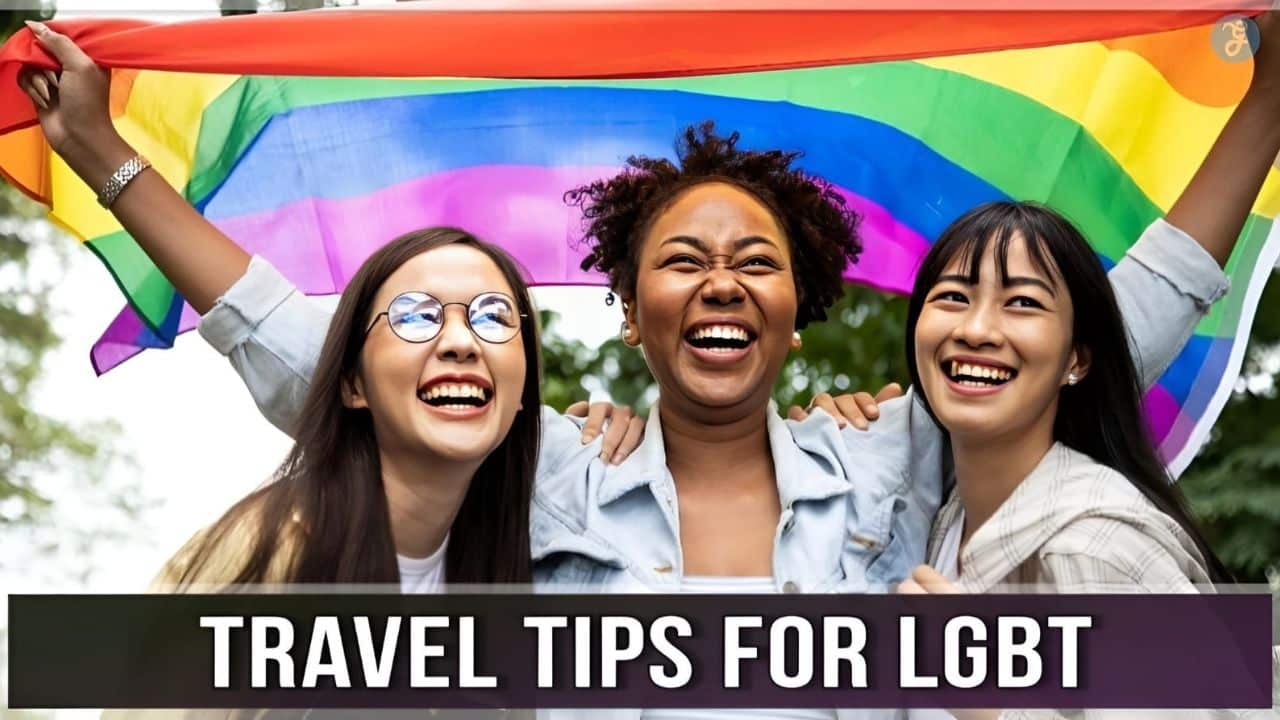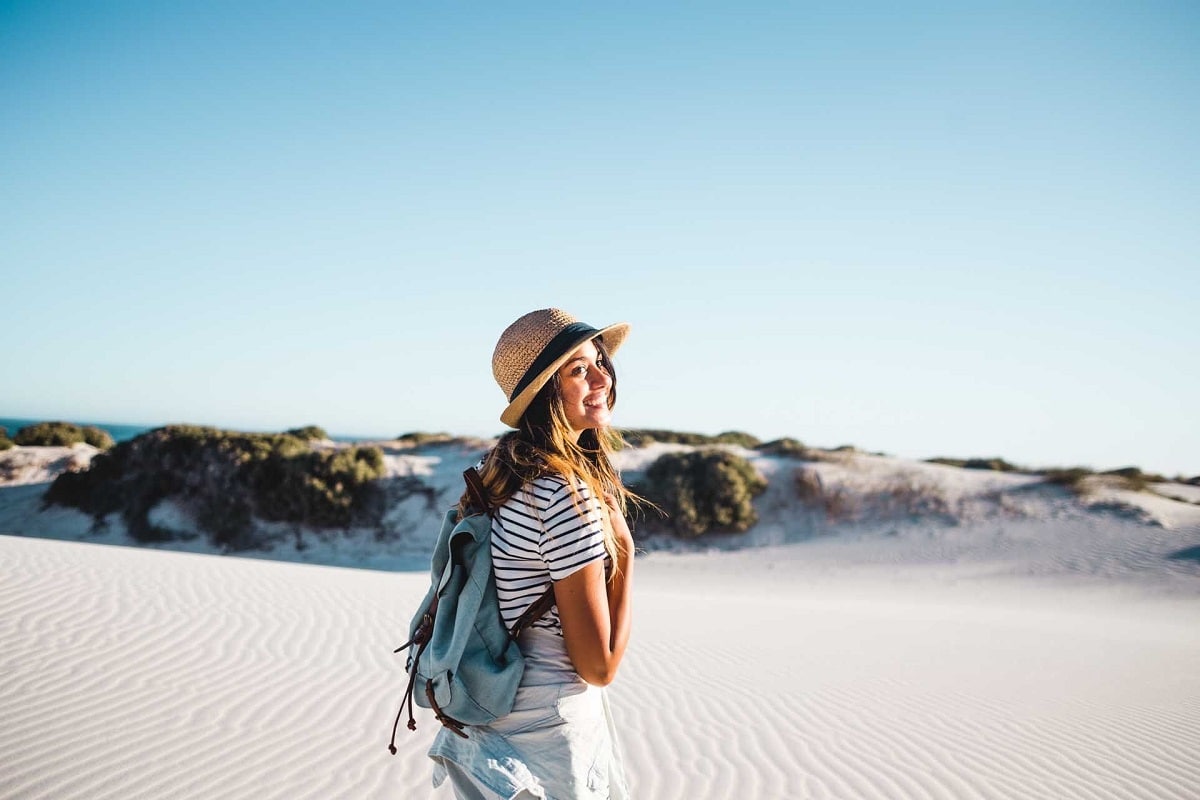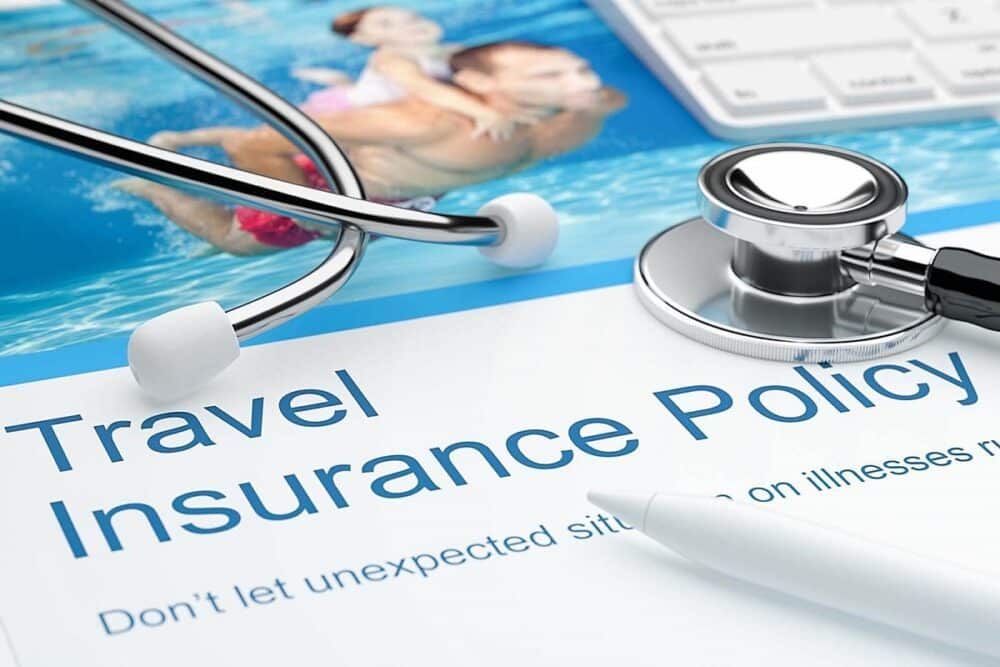Welcome to the world of travel as an LGBTQ+ individual! As a member of the LGBTQ+ community, embarking on a journey can be both exhilarating and empowering. So, in all situations, some travel tips for LGBT are always helpful.
From understanding local laws and social attitudes to finding LGBTQ+-friendly accommodations and connecting with like-minded individuals, these tips will help you embark on a safe, fulfilling, and inclusive travel experience. So, pack your bags, bring your authentic self, and let’s dive into this exciting journey together!
40 Travel Tips for LGBT
Below I’m mentioning 40 LGBT travel tips with proper details. So let’s learn one by one.
1. Research Local Laws
To ensure a safe and enjoyable trip, it is important to research the local laws and policies regarding the LGBTQ+ community in your chosen destination. This step will help you understand the legal status of your sexual orientation and whether it is protected or restricted.
Resources such as the International Lesbian and Gay Association’s world map, the Human Dignity Trust’s fact sheets, and State-Sponsored Homophobia Reports can provide valuable information on sexual orientation laws in different countries. Additionally, exploring LGBTQ+ travel blogs specific to your destination can offer insights from personal experiences.
2. Research Social Opinions of Locals
Understanding the social opinions and attitudes towards the LGBTQ+ community in your destination is equally important. Even in countries where same-sex relationships are legal, societal acceptance may vary, and certain behaviors or displays of affection may be frowned upon. Researching local customs and cultural norms will help you navigate social situations and avoid potential conflicts. Travel blogs, online forums, and resources mentioned earlier can provide valuable insights into the social landscape and help you adapt accordingly.
3. Research the Local Gay Scene
Surprisingly, in some countries where homosexuality is illegal, there may still be thriving LGBTQ+ communities, particularly in larger cities. Researching the local gay scene can help you find LGBTQ+-friendly venues, clubs, and events where you can connect with like-minded individuals.
However, it is important to exercise caution, as law enforcement in countries with anti-LGBTQ+ policies may target such establishments. Understanding the potential risks and being aware of local circumstances can help ensure your safety while enjoying the local LGBTQ+ scene.
4. Connect with other LGBT+ Travellers and Locals
Connecting with other LGBTQ+ travelers and locals can provide a sense of community, support, and valuable information. Utilize social media platforms like Facebook and Instagram to search for LGBTQ+ groups or specific hashtags related to your destination. Following LGBTQ+ travelers on Instagram or reading LGBTQ+ travel blogs can give you insights into experiences and recommendations.
Additionally, dating apps like Grindr and Tinder and platforms like Couchsurfing, Purple Roofs, and Mister B&B can help you connect with like-minded individuals and find LGBTQ+-friendly accommodations. However, it is important to be cautious when using dating apps in countries with anti-LGBTQ+ policies and consider using a VPN for added security.
5. Research Local Social Etiquette
Respecting and understanding local social etiquette is essential for all travelers, regardless of sexual orientation. Each destination has its own cultural norms, and adapting and respecting these customs is important. For example, some countries may have specific dress codes or restrictions on public displays of affection.
Researching and adhering to these social norms will create a positive and respectful travel experience. Remember, embracing cultural diversity requires openness and flexibility from all travelers, not just LGBTQ+ individuals.
6. Be Mindful in Public Spaces
In countries where LGBTQ+ rights are not protected, it is essential to exercise caution and be wary of disclosing your sexuality to strangers. Entrapment cases are common, and the consequences can range from fines to imprisonment. It is better to prioritize your safety by refraining from openly discussing your sexual orientation or sharing personal details such as your hotel or itinerary.
Read Also: 4 Solo Travel Tips You Shouldn’t Ignore
7. Embrace Courage, Overcome Fear
While being aware of potential risks is important, it is equally crucial not to let fear hinder your travel experiences. Most LGBTQ+ travel is safe and enriching, although it may require some adaptation to local customs and norms. Opening your mind to new cultures and ways of life can be incredibly rewarding. Our experiences in destinations like India, Malaysia, and Indonesia have been positive, but conducting research and making decisions that align with your comfort level is crucial.
8. Be Prepared to Adapt
Visiting certain countries as an LGBTQ+ individual or couple may require adapting to local social norms. Recognize what is socially acceptable and behave in a way that shows respect and appropriateness. For instance, in some Asian countries, it is advisable to avoid public displays of affection and be cautious when booking accommodations.
While it may be a sacrifice to refrain from expressing affection openly, it helps ensure personal safety and demonstrates respect for the local culture. It is worth noting that passing as straight and cisgender can often minimize potential issues while traveling.
9. Embrace Confidence
Confidence can be a deterrent to potential trouble. Projecting confidence and familiarity with the area can make you less likely to be targeted. Trust your instincts and be cautious if something feels off or too good to be true.
10. Considerations for Transgender or Gender Nonconforming Individuals
If you identify as transgender or gender nonconforming, additional travel tips specific to your experiences are available. Explore resources tailored to transgender, genderqueer, and non-binary individuals to ensure a safe and comfortable journey.
11. Support LGBTQ+ Travel Companies
Consider booking your trip through LGBTQ+ travel companies for added peace of mind. While these options may be slightly more expensive than independent bookings, they assure traveling with like-minded individuals.
The International Gay & Lesbian Travel Association features a list of LGBTQ+ travel companies, including gay-friendly accommodations, tour operators, and travel agents. Additionally, platforms such as Mister B&B and Purple Roofs cater specifically to LGBTQ+ travelers, offering inclusive accommodations.
12. Avoid Vulnerable Situations
To prioritize your safety, avoiding potentially risky situations such as walking through unsafe neighborhoods, being out alone at night, or spending time with intoxicated individuals in bars is advisable. These situations can make you more vulnerable, especially if you are traveling alone and identify as LGBTQ+. Being aware of your surroundings and taking precautions can help minimize potential risks.
13. Keep Someone Informed at Home
Keeping a trusted person back home updated on your whereabouts is wise, particularly if you are traveling alone. Sharing a general idea of your plans allows someone to look out for you and provides an extra layer of security. While you don’t have to update them on every detail of your trip, having a plan to check in periodically will ensure that someone knows you are safe.
14. Note Down Important Phone Numbers
Make sure to store essential contact numbers in your phone and a physical diary or wallet. If you lose access to one, you still have a backup. Include contact numbers for friends, family, your bank, travel insurance provider, doctors, and other necessary contacts. This preparation will help you stay connected and access assistance if needed.
Read More: Going on a Trip in Monsoon, So Pack Your Bag
15. Look for LGBTQ+ Friendly Badges
When booking accommodations through booking.com, check if they display the Proud Hospitality Badge. This badge indicates that the property is LGBTQ+ friendly and has completed an online Proud Hospitality training session.
Additionally, before booking a hotel or visiting a restaurant, read reviews to ensure they have a good reputation for cleanliness, quality, and service. Positive reviews can provide confidence in your choice of establishments.
16. Prioritize Travel Insurance
Travel insurance is essential to protect yourself against unexpected events such as illness, injury, theft, or trip cancellations. Investing in comprehensive travel insurance coverage ensures you are financially protected in emergencies. World Nomads is a recommended provider of travel insurance, offering affordable packages with various options and the flexibility to make policy amendments while traveling. For further information, refer to our article on why travel insurance is necessary.
17. Check Visa Requirements
Before traveling, it is crucial to check the visa requirements of your destination country. Failure to have the appropriate visa can result in airlines denying boarding or immigration authorities detaining you upon arrival. To avoid issues, use reliable sources to determine if a visa is required and obtain one in advance. Checking visa requirements and obtaining the correct documentation will ensure a smooth and hassle-free travel experience.
18. Verify Passport Validity
Ensure that your passport has at least six months of validity before its expiration date. Some airlines and immigration offices require six months or more validity beyond your travel dates. Checking your passport’s expiration date well in advance allows you to renew it if needed, ensuring you meet the entry requirements of your destination country.
19. Keep Passport Copies
Make copies of your passport, visa, travel insurance policy, and other essential travel documents. It is recommended to have both physical and digital copies. Storing these copies in a separate location from the originals, such as in your email or a secure cloud storage service, ensures you have access to the necessary information in case of loss or theft.
20. Arrive during the Daytime
Schedule your flights to arrive at your destination during daylight hours. Arriving in the daytime provides a safer and more secure environment, as more people are generally around. This reduces the chances of being targeted by criminals or scam artists.
21. Plan Your Route
Before traveling, plan your transportation route from the airport to your accommodation. Research public transport options and their costs, and familiarize yourself with the expected route. This preparation will help you avoid getting lost, overcharged by taxis, or becoming an easy target for scams. Having a clear idea of how to reach your destination ensures a smoother arrival experience.
22. Utilize Offline Google Translate App
The offline version of the Google Translate app is incredibly useful for communicating in different languages without relying on data or internet connectivity. Download the language packs you need before your trip to be able to translate on the go. This can be particularly helpful when communication is challenging, or language barriers exist.
Also Read: Some Tech Tips Before Your Traveling to the Destination
23. Download Offline Maps
Consider downloading offline map applications like Maps.me. These apps allow you to access maps without an internet connection, which is valuable when navigating unfamiliar places. Pin your accommodation location on the map, ensuring you have a reference point even if you don’t have access to data or Wi-Fi. This way, you can always find your way back, even after enjoying a few drinks or getting temporarily disoriented.
24. Utilize Taxi Apps
Consider using taxi apps such as Uber or similar services in most major cities for convenient and safe transportation. Download the app on your phone before you arrive at your destination. These apps are generally safer than hailing local taxis and often offer more affordable fares. With these apps, you can agree on the price before entering the vehicle, eliminating the risk of being overcharged.
25. Keep a Digital Itinerary
To stay organized and save time searching through emails, store your travel confirmation numbers and itineraries in one place on your phone. Use apps like TripIt, which allow you to access and manage your travel information easily. Check out other must-have travel apps for additional tools to enhance your travel experience.
26. Drink Responsibly
While enjoying your travels, it is important to consume alcohol responsibly. This is especially crucial for solo travelers to stay aware of their surroundings. Alcohol can impair judgment and make you more vulnerable. Limit your alcohol intake and remain sensible to ensure your personal safety and well-being.
27. Pack Your Protection
If you plan to engage in sexual activity during your travels, it is wise to bring your own condoms or other forms of protection from home. Determining the quality and safety of unfamiliar products in a foreign country can be difficult. Packing your own ensures you have reliable protection readily available. If you engage in unprotected sex while traveling and have concerns about HIV, consider getting tested. STDcheck.com offers free STD testing to US-based readers, so inquire about this service.
28. Be Mindful of Packing
Be aware that in some countries, carrying sex toys or materials may be illegal. It is important to consider local laws and customs when packing your belongings. Failure to do so can result in embarrassing situations or items being confiscated. Always prioritize understanding the local regulations to avoid any issues during your travels.
29. Check Medication Legality
If you take any medications, it is crucial to ensure they are legal in the country you are visiting. Research local medication laws and regulations and carry them in their original packaging. This helps customs officials identify the contents of your medication and confirms its legitimacy.
Read More: Tips and Tricks to Travel on a Budget in any Country
30. Purchase a Secure Day Bag
To safeguard your valuable items, invest in a secure day bag. Choose a smaller bag you can wear on your front while exploring, keeping your tech gadgets, cameras, and other valuables secure. Using a safety padlock adds an extra layer of protection. Remember never to leave your luggage unattended to prevent theft or loss.
31. Essential Waterproof Gear
Consider adding waterproof items to your packing list to be prepared for various weather conditions. Essential waterproof gear includes a waterproof dry bag for protecting your belongings, waterproof luggage covers to safeguard your suitcase, and a waterproof jacket to stay dry during rainy or unpredictable weather. These items ensure your comfort and protect your belongings from water damage.
32. Dress Modestly
To avoid drawing unnecessary attention and minimize the risk of bag snatching or pickpocketing, it is advisable to dress modestly and avoid wearing valuable jewelry or displaying expensive electronics. In some countries, there may be a perception that all tourists are wealthy, so it’s best not to encourage this misconception.
33. Carry Limited Cash
While having some local currency with you when traveling is recommended, it is wise to avoid carrying large sums of cash. Instead, consider wearing a money belt or using other secure methods to carry your cash. There are usually plenty of options for currency exchange, so you don’t have to carry excessive amounts of money, reducing the risk of loss or theft.
34. Exchange Money Wisely
ATMs are common in most cities and towns, but some may charge usage fees. Research leading high street banks for better deals and exchange rates. Choose the latter when given the option to proceed “with or without conversion” at an ATM. This ensures that your bank, rather than the ATM provider, determines the exchange rate, potentially saving you money.
35. Consider a Currency Card
Using a currency card like Easy Fx can be a cost-effective alternative to withdrawing money with your debit or credit cards. These cards allow you to make purchases, withdraw cash, and transfer funds without incurring international transaction fees.
36. Travel with Portable Wi-Fi
If you rely on internet access during your travels, consider investing in a portable pocket Wi-Fi device like TravelWifi. This allows you to have a secure and reliable internet connection wherever you go without the hassle of hefty phone bills or purchasing multiple international SIM cards. Visit the provided link for more information on coverage, packages, and current offers.
37. Use a VPN for Security and Accessibility
Using a virtual private network (VPN) is essential for maintaining the security and privacy of your data while traveling. It encrypts your internet connection and protects against potential threats. Additionally, a VPN can help bypass geo-restrictions on certain websites or streaming platforms and prevent demographic price discrimination when booking flights or accommodations. Ensure you have a reliable VPN service to enhance online security and accessibility.
38. Explore LGBTQ+ Events and Festivals
Research and attend LGBTQ+ events and festivals happening in your destination. These events provide an opportunity to celebrate diversity, connect with the local LGBTQ+ community, and enjoy vibrant cultural experiences. From Pride parades to film festivals, there are numerous events worldwide that embrace inclusivity and create a supportive atmosphere for LGBTQ+ travelers.
39. Engage in LGBTQ+ Volunteer Opportunities
Consider participating in LGBTQ+ volunteer programs or initiatives during your travels. Many organizations worldwide focus on supporting LGBTQ+ communities and promoting equal rights. Volunteering can allow you to make a positive impact, contribute to meaningful causes, and connect with local activists and organizations working towards LGBTQ+ rights and inclusion.
40. Educate Yourself on LGBTQ+ History and Landmarks
Take the opportunity to learn about the LGBTQ+ history and landmarks of your destination. Research significant historical sites, museums, and landmarks commemorating LGBTQ+ struggles, achievements, and milestones. Visiting these locations can provide insight into the local LGBTQ+ culture, activism, and contributions to the broader community.
Read Also: Some Tips Every Traveler Should Know
Frequently Asked Questions (FAQs)
Here we’re providing some common questions related to our today’s topic.
How can I ensure my safety as an LGBT traveler?
Research your destination beforehand to understand its stance on LGBT rights and social acceptance. Consider traveling to countries known for LGBT-friendly environments and connect with local LGBT communities for insights and advice.
Are there specific travel destinations that are more welcoming to LGBT travelers?
Several destinations have established themselves as LGBT-friendly, such as Amsterdam, Barcelona, San Francisco, and Berlin. It’s recommended to research and choose destinations that have progressive attitudes, legal protections, and vibrant LGBT scenes.
What should I do if I encounter discrimination or hostility while traveling?
Prioritize your safety and well-being. If you experience discrimination or hostility, consider contacting local LGBT organizations or authorities that can provide assistance and support. Reporting incidents to your country’s embassy or consulate is also advisable.
Are there any specific cultural customs or laws I should know as an LGBT traveler?
Different countries have varying cultural attitudes and legal frameworks surrounding LGBT issues. Research local customs, traditions, and laws to understand how open or restrictive the environment might be. This knowledge will help you navigate social situations more comfortably.
Final Verdict
So, that’s everything about the best travel tips for LGBT.
In conclusion, when it comes to travel tips for the LGBT community, it is essential to prioritize safety, respect, and awareness. Traveling as an LGBT individual or couple can bring unique challenges and considerations, but with proper preparation, it is possible to have a fulfilling and enjoyable travel experience.









































